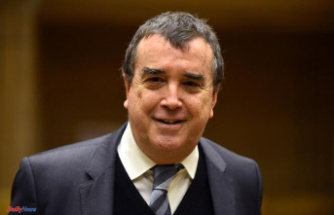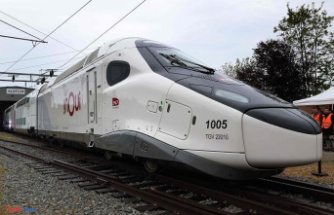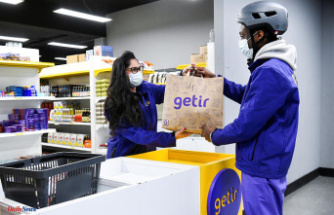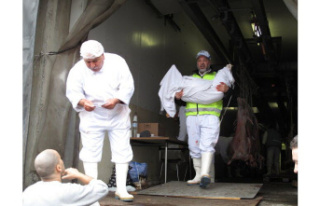France recently boasted that it is independent of Russian gas. In fact, there are 56 nuclear power plants in the country, but heat and age are affecting them - so that they currently produce less electricity than German solar systems.
Nuclear power has a prominent place in the French government program: "The energy transition will succeed thanks to nuclear power," Prime Minister Elisabeth Borne assured MPs, pointing out that nuclear power is CO2-neutral, "sovereign and competitive". But in the country that is more committed to nuclear power than any other, problems with its aging power plants are numerous. A hot, dry summer threatens to exacerbate the situation.
Since summer weather has prevailed in Germany, German solar power plants have at times produced more than all French nuclear power plants combined. This week they reached daily highs of more than 30 gigawatts, while the output of nuclear power plants in France did not climb above 28 gigawatts.
This is primarily due to the fact that half of France's 56 nuclear power plants are currently offline for maintenance work and technical problems. The operator EDF has revised its forecast downwards several times. Annual production could potentially drop to its lowest level in three decades in 2022.
Corrosion damage, fine cracks in the pipes of the emergency cooling system, which were first noticed in October 2021 at the Civaux nuclear power plant, are responsible for this. First, identical nuclear reactors were shut down. It is now clear that the entire nuclear park is to be checked.
Because of the early heat waves this year - the earliest since weather records began in France - several nuclear power plants had to be throttled at times. The Blayais nuclear power plant on the Gironde and Saint-Alban on the Rhone were affected. Both rivers carried so little water that the warm cooling water would have heated up the rivers too much. A total of six nuclear power plants are currently under increased surveillance, which could cause problems in future heat waves.
All of this means that EDF could accumulate more than 60 billion euros in debt this year. The government has therefore decided to completely nationalize the company, which is already more than 80 percent state-owned.
At the beginning of the Ukraine war, France still boasted of Germany that it was independent of Russian gas. But in view of the problems with its own nuclear power plants, it is now all the more clear that France has largely overslept the expansion of renewable energies.
In June, an offshore wind farm produced electricity for the first time - surprisingly late for a country that has long coasts on the English Channel and the Atlantic. Several offshore wind farms are currently under construction. President Emmanuel Macron wants to have a total of 50 offshore wind farms built by 2050, which should then produce 40 gigawatts. However, he wants to slow down the expansion of wind farms in the countryside, which are particularly controversial in France.
France is particularly fond of pointing the finger at Germany's coal-fired power plants, but is now forced to restart a coal-fired power plant near the German border that was shut down at the end of March in the winter. But an "environmental compensation" is planned, emphasized the Ministry of the Environment, such as an obligation for the operator of the power plant in Saint-Avold to invest in reforestation projects.
In addition to all this, the French Court of Auditors is also urging the French electricity market to be cleaned up, since the rules do not meet European requirements. "Neither understandable nor controllable" is the organization of the electricity market, in which the state has repeatedly intervened in the past in order to guarantee consumers low prices.
A sign that a rethink is gradually beginning is the word “saving electricity” (sobriété, which also means sobriety), which both the government and the energy companies are now openly pronouncing. In a guest article in the Sunday newspaper "JDD", the bosses of three energy companies recently spoke out in favor of combating energy waste. "The best energy is the one we don't use," said Totalenergies' Patrick Pouyanné, EDF's Jean-Bernard Levy and Engie's Catherine MacGregor - and they should know.












